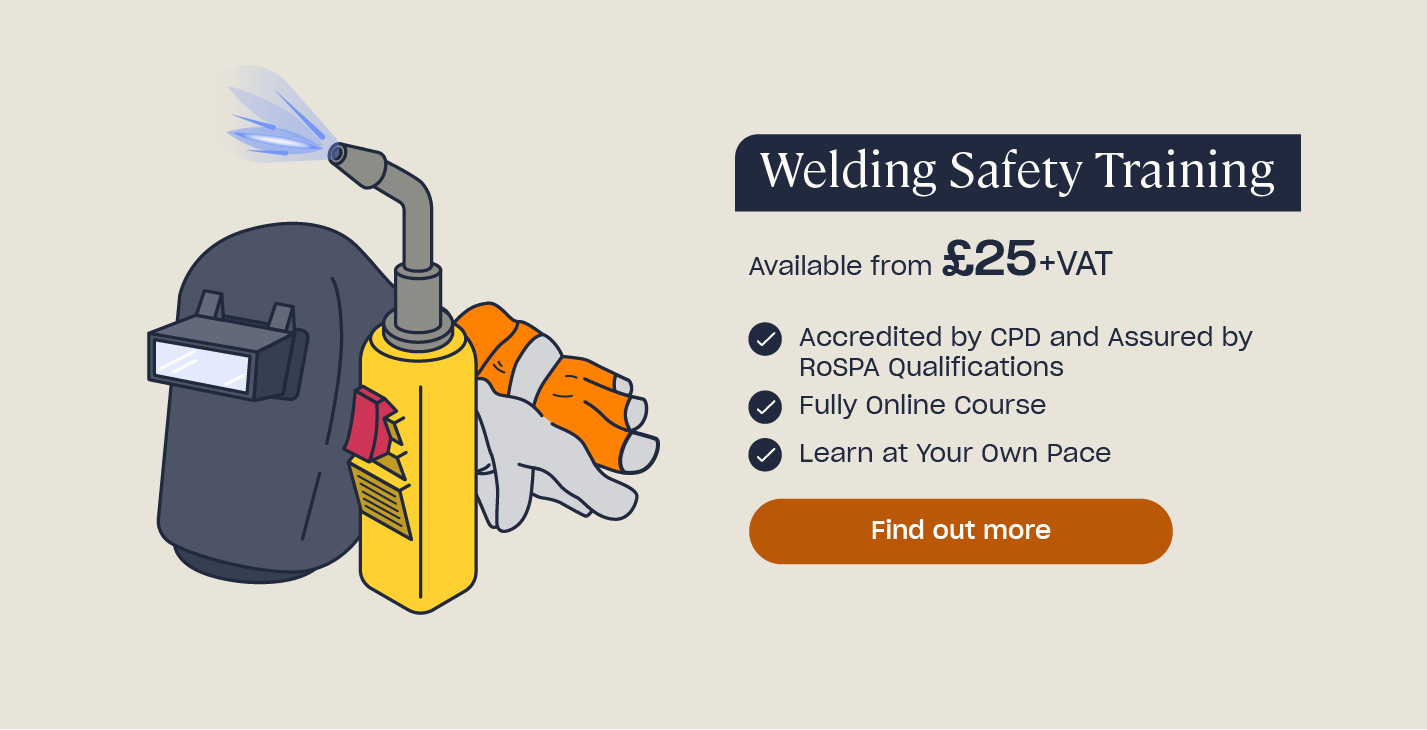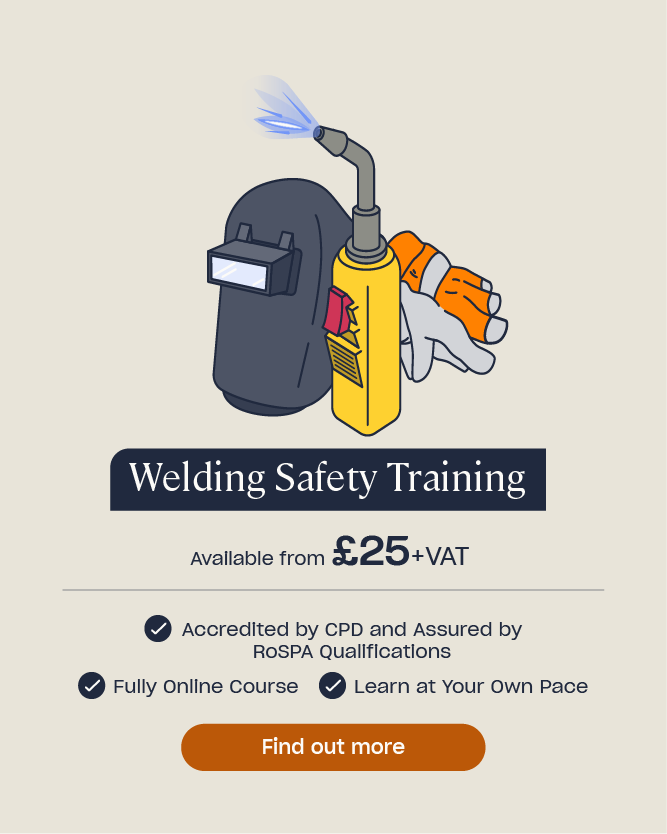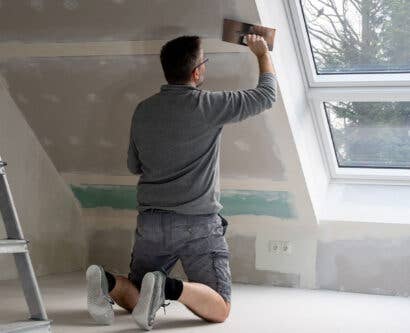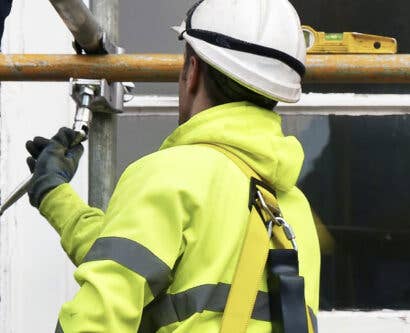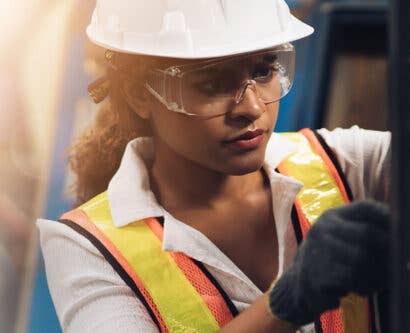How to Become a Welder
Welding is a skilled trade in an industry that can provide you with a job for life. Skilled, competent and experienced welders are always in demand in the UK, so it’s a career area that’s well worth looking into if you’re interested in joining the engineering or construction sectors. In this article, we’ll outline everything that you need to know about becoming a welder, including what a welder does, the skills and qualifications you’ll need to become a welder and how to go about getting your first welding role.
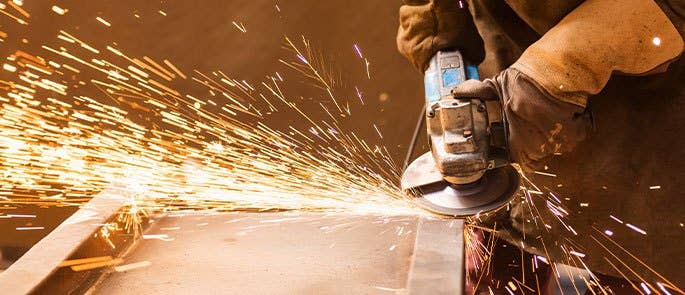
What Does a Welder Do?
A welder is someone who cuts, shapes, joins and repairs pieces of metal using heat. They can also be referred to by their particular area of expertise, such as a pipe welder, MIG welder, TIG welder or arc welder.
Welders might work with welding materials such as aluminium, steel or brass, and may work on a construction site, demolition site, shipyard, in a personal workshop, in a factory or in people’s private homes. The role is likely to involve lone working, hot work and working at height, so the ability to work well in a high-pressure working environment is essential.
Key tasks a welder does include:
- Using heat and gas to join parts together.
- Selecting which materials are appropriate for the task.
- Selecting the right welding procedure to use for each task.
- Making repairs to existing metal parts and pipes.
- Operating and calibrating welding equipment and tools.
- Measuring and cutting metal plates and pipes.
- Inspecting and testing the quality of joints.
- Dismantling and cutting up old metalwork.
- Working on an assembly line.
- Controlling flame sources to maintain the correct temperature.
- Working with fume extraction systems.
- Following detailed design drawings and engineering instructions.
- Maintaining machinery.
- Cleaning tools, equipment and work areas.
- Following safety procedures at all times.
What Qualifications Do You Need to be a Welder?
To become a welder, it’s recommended that you look into a relevant college course or apprenticeship to ensure you have both the practical and theoretical skills needed to perform the role safely.
For many welding jobs, you’ll need an industry safety certificate, such as the Client Contractor National Safety Group (CCNSG) Safety Passport alongside your qualification. You’ll also need a valid Construction Skills Certification Scheme (CSCS) card if you plan to work as a welder on a construction site. Bear in mind the time and costs associated with obtaining these extra certificates and cards if you plan to enter this line of work.
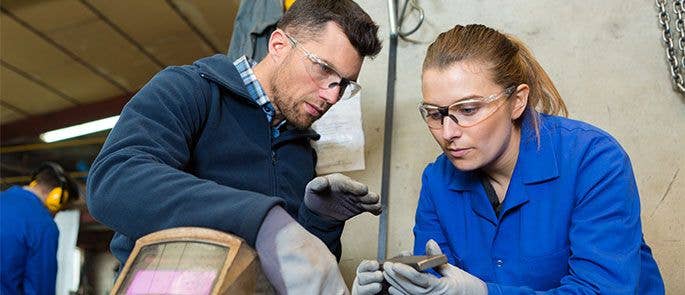
The qualifications you need to be a welder include:
Welding College Courses
A college welding course enables you to learn everything you need to know to become a trainee welder, including essential welding techniques and skills, health and safety procedures and knowledge of the engineering industry.
Examples of relevant courses are a Level 1 in Introductory Welding Skills, a Level 2 Award in Welding Skills and Techniques, a Level 3 Certificate in Welding and Fabrication Engineering Technology (for more experienced welders) or a T Level in Engineering, Manufacturing, Processing and Control. To take a level 2 college course in welding, you’ll need at least two GCSEs at grades 9 to 3 (A* to D), or equivalent.
Welding Apprenticeships
During a welding apprenticeship, you’ll learn hands-on skills from experienced welders alongside your classes in a college. An apprenticeship gives you real-life experience of welding, allows you to earn money whilst training and may lead to a position as a trainee welder within the company you do your apprenticeship with.
Examples of relevant apprenticeships are the General Welder Level 2 Intermediate Apprenticeship, the Pipe Welder Level 3 Advanced Apprenticeship and the Plate Welder Level 3 Advanced Apprenticeship. Each one takes 2-4 years to complete and you’ll need at least two GCSEs, including English and maths, to get started.
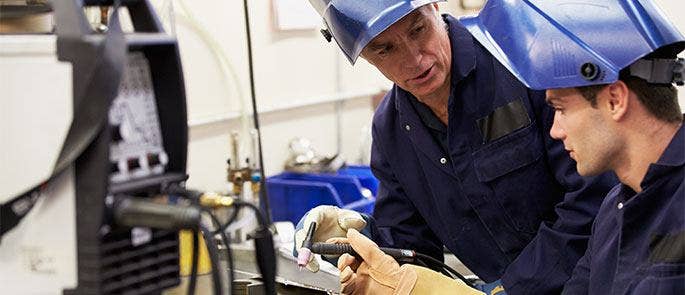
Welder Work Experience
Work experience as a welder is usually voluntary and unpaid, whether you do it full-time for a fortnight, after school or on a weekend. Welding work experience is a great way to get experience of a real-life working environment and is an asset to your CV. You could choose to shadow an experienced welder or look into a more specialist area of engineering or fabrication.
Welding Health and Safety Awareness Training
To be a welder, you must prioritise health and safety at all times and recognise the importance of performing the role safely and according to regulations.
High Speed Training has a wide range of health and safety awareness training that’s ideal for both new and experienced welders. All the courses can be completed online, giving you a certificate to put on your CV at the end. Some of the awareness level courses on offer include:
- Welding Safety
- Hot Work Training
- Working at Height
- Ladder Safety
- Working in Confined Spaces
- Health and Safety Training for Employees
- Manual Handling Awareness
You can access our full catalogue of online health and safety training courses here.
What Skills Do You Need to Be a Welder?
As well as being able to carry out the practical tasks associated with welding, like cutting metal, making joins and using hot flame tools (your welding ‘hard skills’), a competent welder also needs to possess a range of ‘soft skills’ to be successful in the role.
Examples of welding soft skills are:
- Knowledge of the engineering industry as a whole.
- Understanding of welding health and safety procedures.
- Knowledge of hot work procedures.
- Recognition of the risks, such as arc-eye and burns.
- Good manual dexterity, strength and stamina.
- Good hand-eye coordination.
- Great attention to detail.
- Ability to read and follow technical drawings.
- Knowledge of technical welding terminology.
- Good maths skills.
- Problem-solving skills.
- Good concentration and ability to focus.
- Ability to adhere to deadlines.
- Ability to work alone safely.
- Knowledge of how to use, maintain and repair tools.
- Basic computer skills.
How to Get into Welding
If you’re new to the industry but know that welding is a career you want to pursue, take a look at the UK government’s apprenticeships near you or courses near you websites to find some initial training. You can then use the find a job service to look for permanent welding roles.
If you work in engineering already and want to move into welding, you can look at taking an additional training course in welding or inspection through The Welding Institute (TWI). Anyone can join the TWI and it can be a useful source of information for professional development, networking and training opportunities for both new and experienced welders.
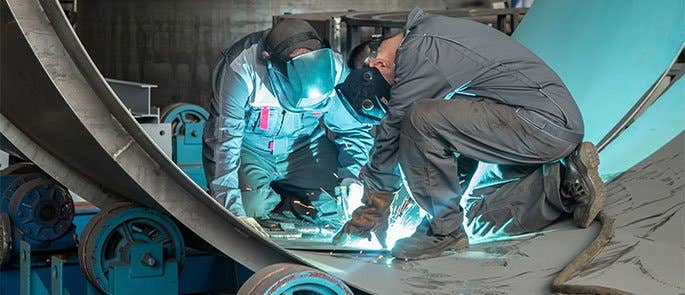
If you’re unsure whether welding is the right career for you but you’re still interested in developing a trade, then our guide on careers in the construction industry will help you explore other similar job options that you may be interested in.
With experience as a welder, you can then explore different types of welding careers, such as becoming a supervisor or workshop manager, working in quality control and welding inspection, training new welders, becoming a welding engineer or specialising in a particular area of welding, such as marine engineering or boiler making. An experienced welder can earn in excess of £45,000 per year.
Skilled, qualified and competent welders will always be in demand in the engineering and construction industries, so pursuing this line of work can be a great career choice. Welding requires both practical skills and soft skills, including thorough knowledge of how to carry out this high-risk role safely and according to procedure. Once qualified, welding can become a career for life.
Further Resources:
- Online Health and Safety Courses
- How to Become a Construction Worker
- What is Asbestos Awareness Training & Who Needs it?
- How to Become an Engineer


